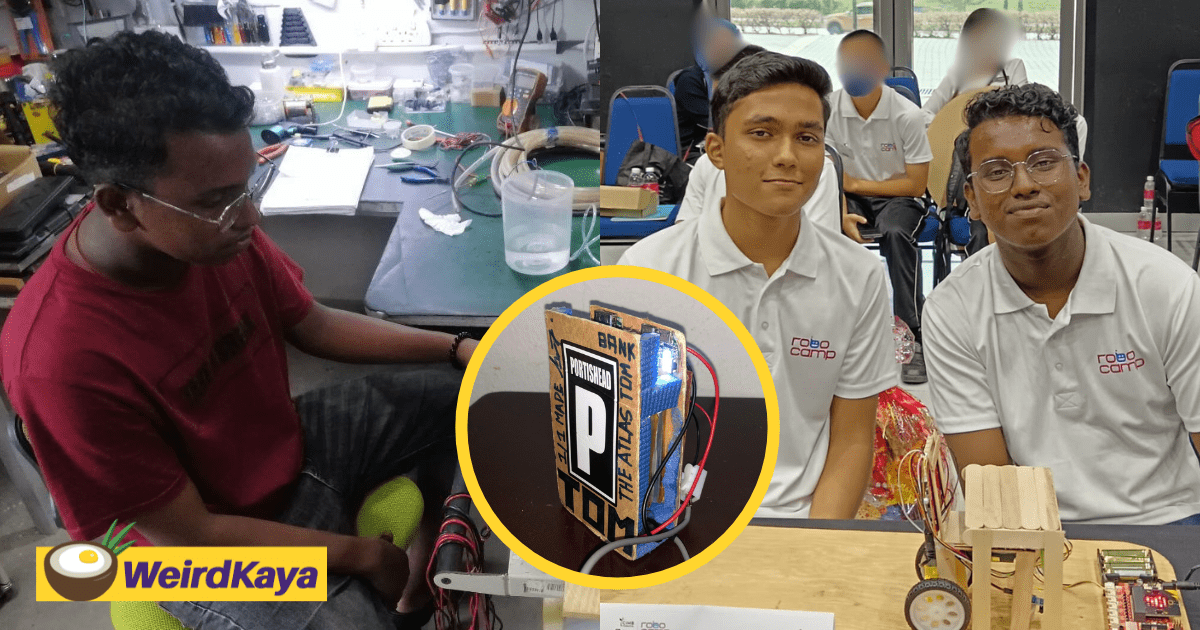Exclusive Story by WeirdKaya- Proper accreditation to WeirdKaya and consent from the interviewee are required.
In a small town in Kajang, Malaysia, there lived a 17-year-old boy whose love for technology runs deep.
Phavanesh Bala Subramaniam is not your typical teenager while others might spend their free time scrolling through social media or playing games.
Unlike his peers, Phavanesh is in his garage, tinkering with old gadgets and building tech wonders from scratch. His latest creation? One of his proudest creations? A fully functional power bank he built from scratch — all on his own — two years ago.
And now, he’s taking things to the next level. He’s working on an ambitious project using AI to grow plants without water, air, or even sunlight. Crazy? Maybe. Genius? Definitely.
This is his story.
A passion ignited at 8 years old

Phavanesh’s fascination with technology started when he was just eight years old. While most children would be content with toys, Phavanesh took them apart to figure out how they worked.
I was always curious about how things worked. I’d look at a gadget and wonder, ‘What makes this tick?’ Soon, that curiosity turned into a passion,” he recalled.
It wasn’t long before he realised that his love for technology wasn’t just a passing phase. By the time he was 12, he began to understand the intricate workings of electronics, thanks to his father.
Being a tech expert himself, Phavanesh’s dad would take him to his office, where he could observe him fixing computers and gadgets.
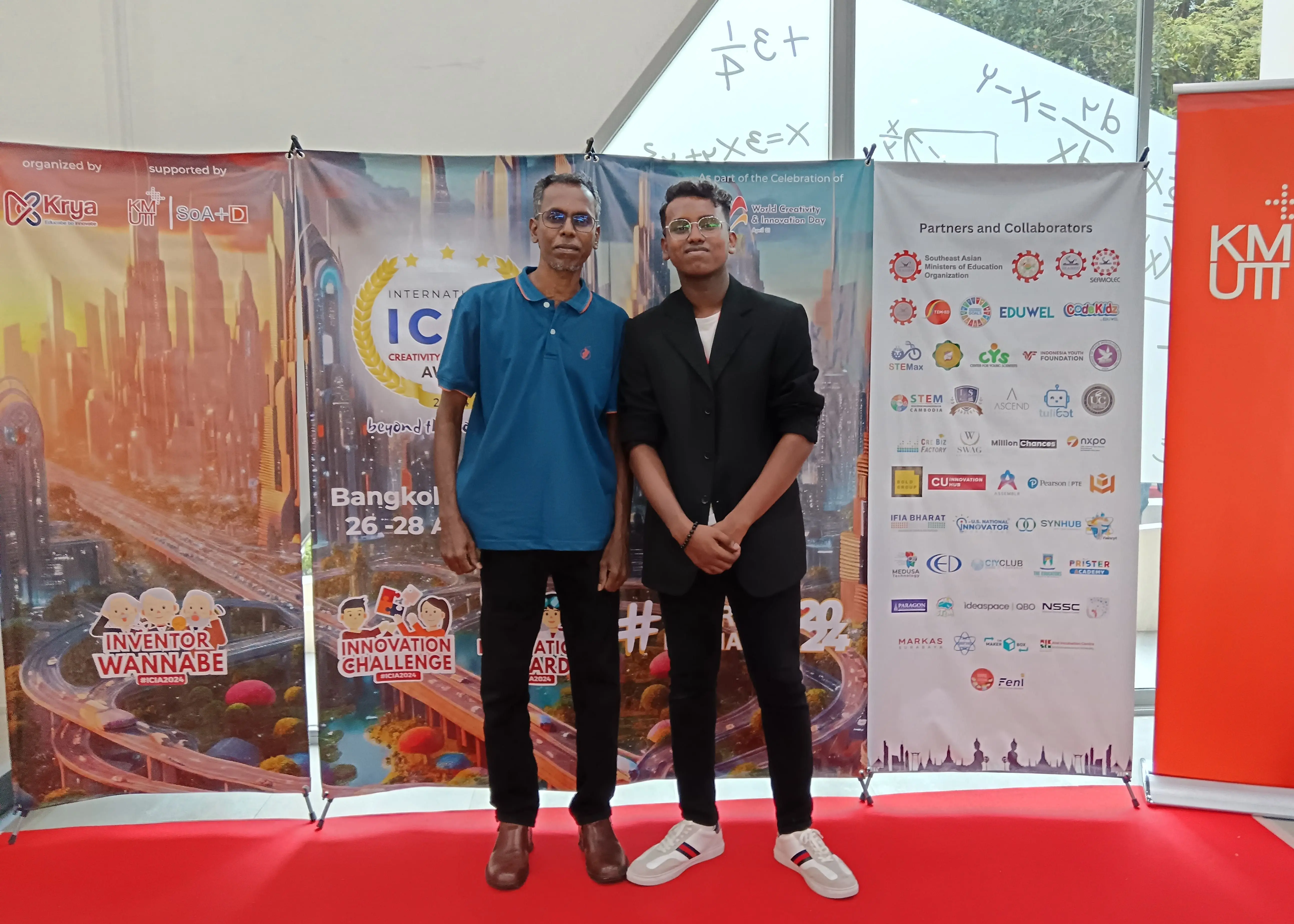
Watching my dad work, I knew this was what I wanted to do. I wanted to create things that could solve real problems,” says Phavanesh with a gleam in his eyes.
Building his own power bank
The idea for building his own power bank came when Phavanesh, like many of us, was constantly looking for a portable charger.
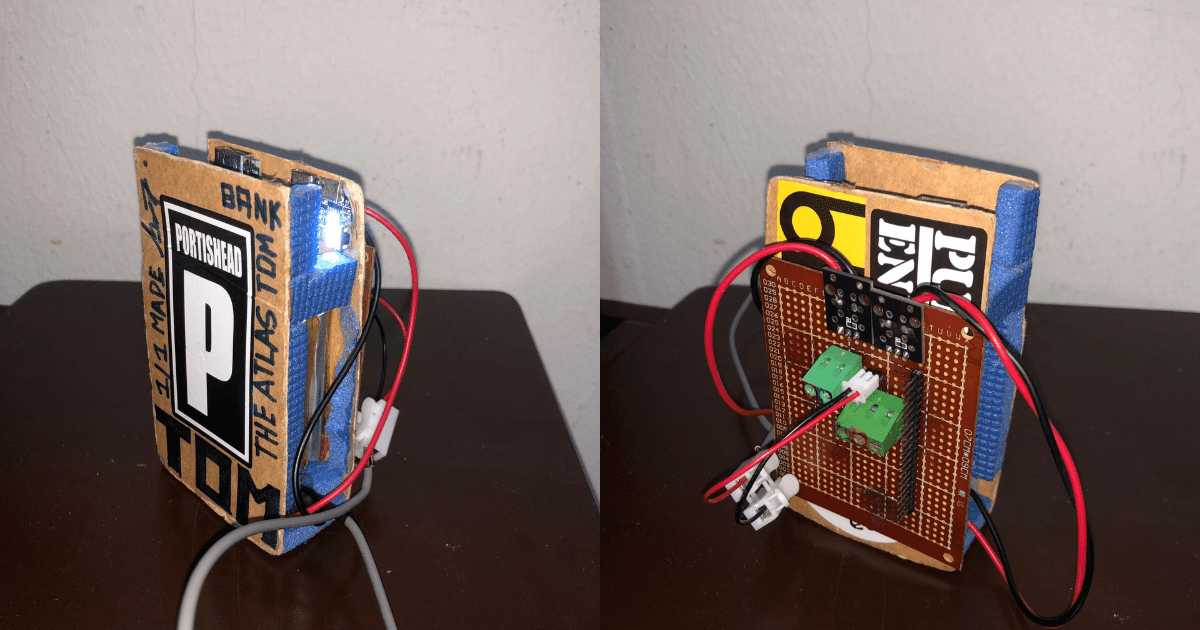
But instead of buying one, he had a lightbulb moment: why not try to build one for himself? Armed with this thought, he dove headfirst into the world of electronics.
Starting with research, Phavanesh studied how commercial power banks worked. He scavenged for recycled components, including a high-quality lithium-ion battery, and designed a modular power bank that could be taken apart and repaired.
But Phavanesh didn’t just want to build a basic power bank — he wanted it to stand out.
“My power bank is different from the ones you buy in stores. It’s modular, which means you can take it apart and upgrade it. It’s also more efficient, and I added some unique charging features that aren’t found in regular power banks.”
Challenges along the way
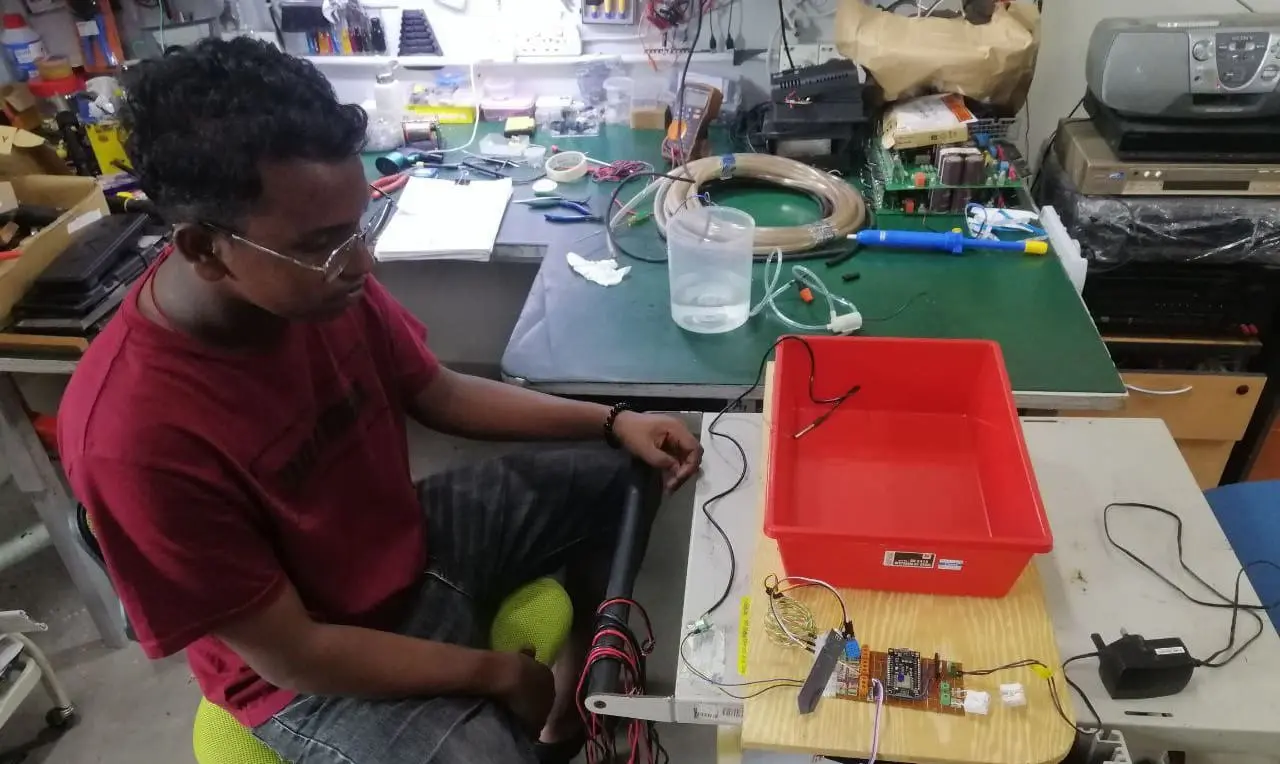
Of course, no project comes without its hurdles. Phavanesh faced multiple challenges while building his power bank, particularly with rapid battery drainage and overheating during testing.
It was a lot of trial and error. But every setback taught me something new.”
His persistence paid off, and after multiple tests and tweaks, the power bank was finally ready for use.
Yet, even after completing his creation, Phavanesh encountered more doubts — especially from the people around him.
“When I told them I built it, some were worried it might explode! But most were impressed once they saw it working,” he recounted.
From passion to purpose
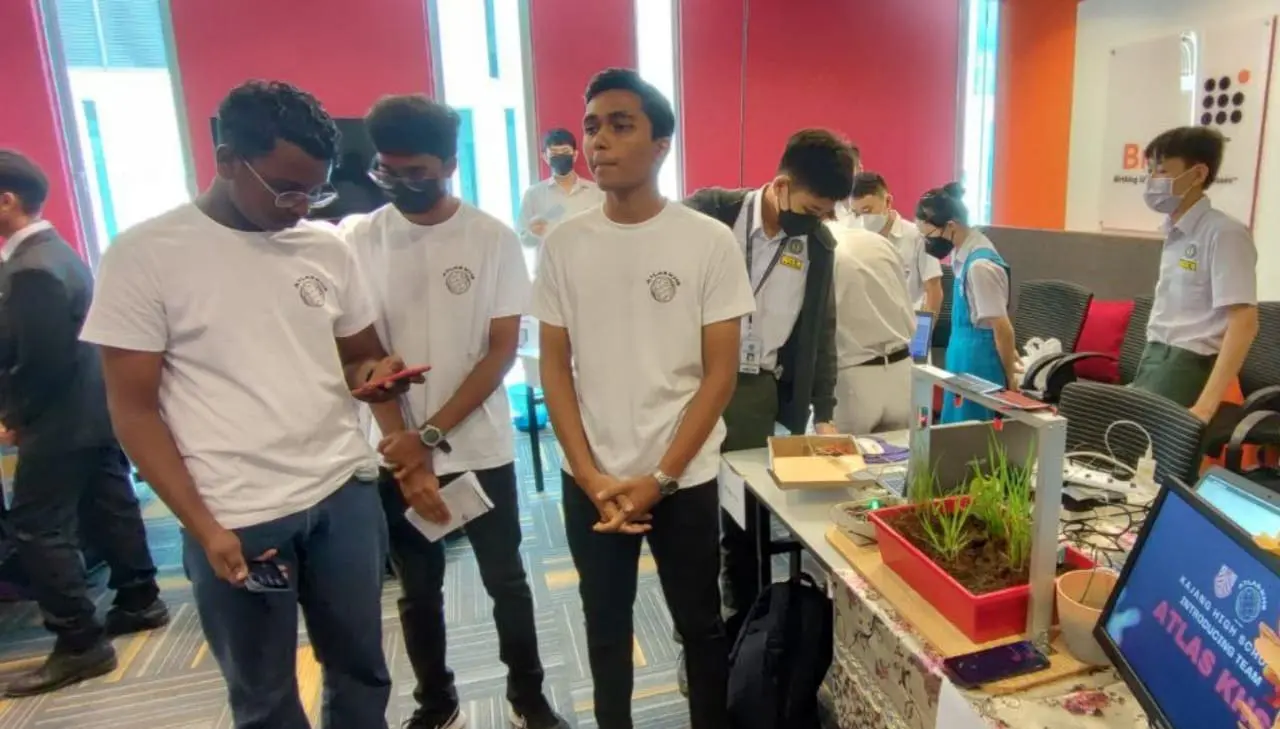
Phavanesh’s journey is far from over. He’s already dreaming up plans to expand his power bank into a product that could be developed on a larger scale.
I have so many ideas for the next version, and I think it could become something really big,” he shared.
But it’s not just about building gadgets for Phavanesh. He’s also focused on creating solutions for bigger global challenges.
Phavanesh’s dream project
One of his projects, a smart plant monitoring system, uses Internet of Things (IoT) and artificial intelligence (AI) to help plants grow without the need for water, air, or sunlight.
“With climate change threatening plant life, I wanted to create something that could help plants thrive no matter the environment,” he explained.
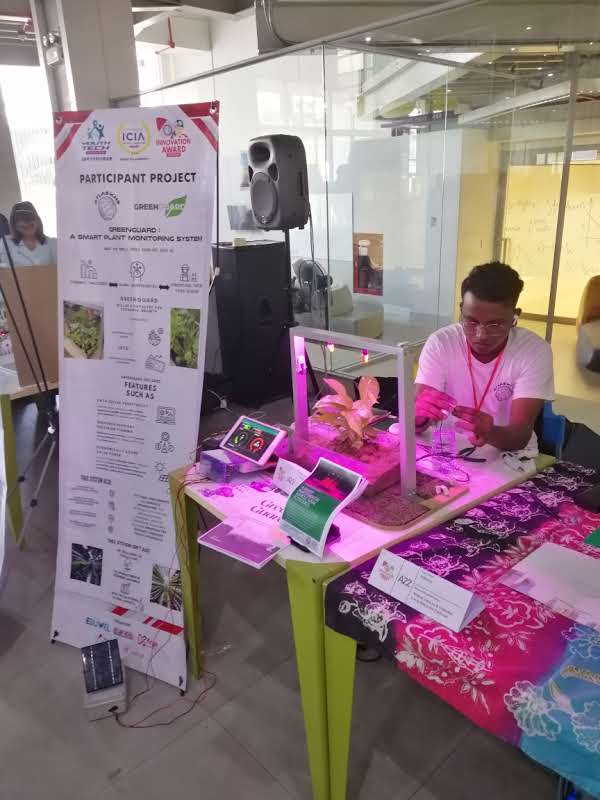
Overcoming skepticism
Being a young innovator, Phavanesh often faces skepticism about his abilities, especially when people learn how young he is.
“Sometimes, people think that because I’m 17, I don’t have the experience to know what I’m doing. But when they see my work, they start to believe in me.”
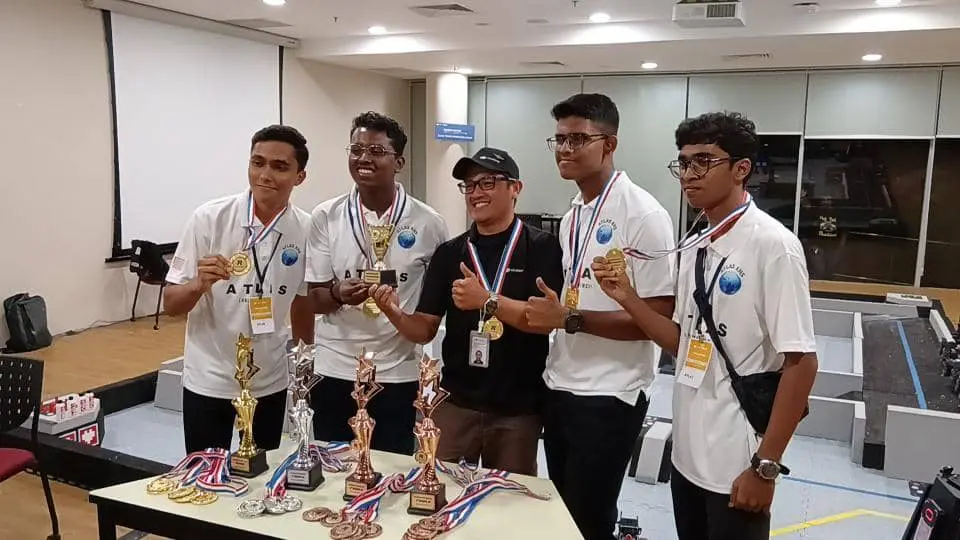
In fact, these challenges only serve to fuel his determination. “When you face skepticism, it just makes you want to prove yourself even more. It’s all about pushing boundaries and continuing to learn,” he said with a smile.
For other young people who might be curious about technology but unsure where to start, Phavanesh has one simple piece of advice:
“Just start. You don’t need expensive equipment. Watch tutorials, buy a development kit, and experiment. The key is curiosity. The more you stay curious, the more you’ll learn.”
Phavanesh’s story shows us that with passion, persistence, and a bit of creativity, you don’t need to wait until you’re older to make an impact.
I want to create a company that solves real-world problems. Whether it’s climate change or energy efficiency, I want to create solutions that matter.”
As Phavanesh looks to the future, he sees himself not only as a technopreneur but as a leader in the world of innovation.
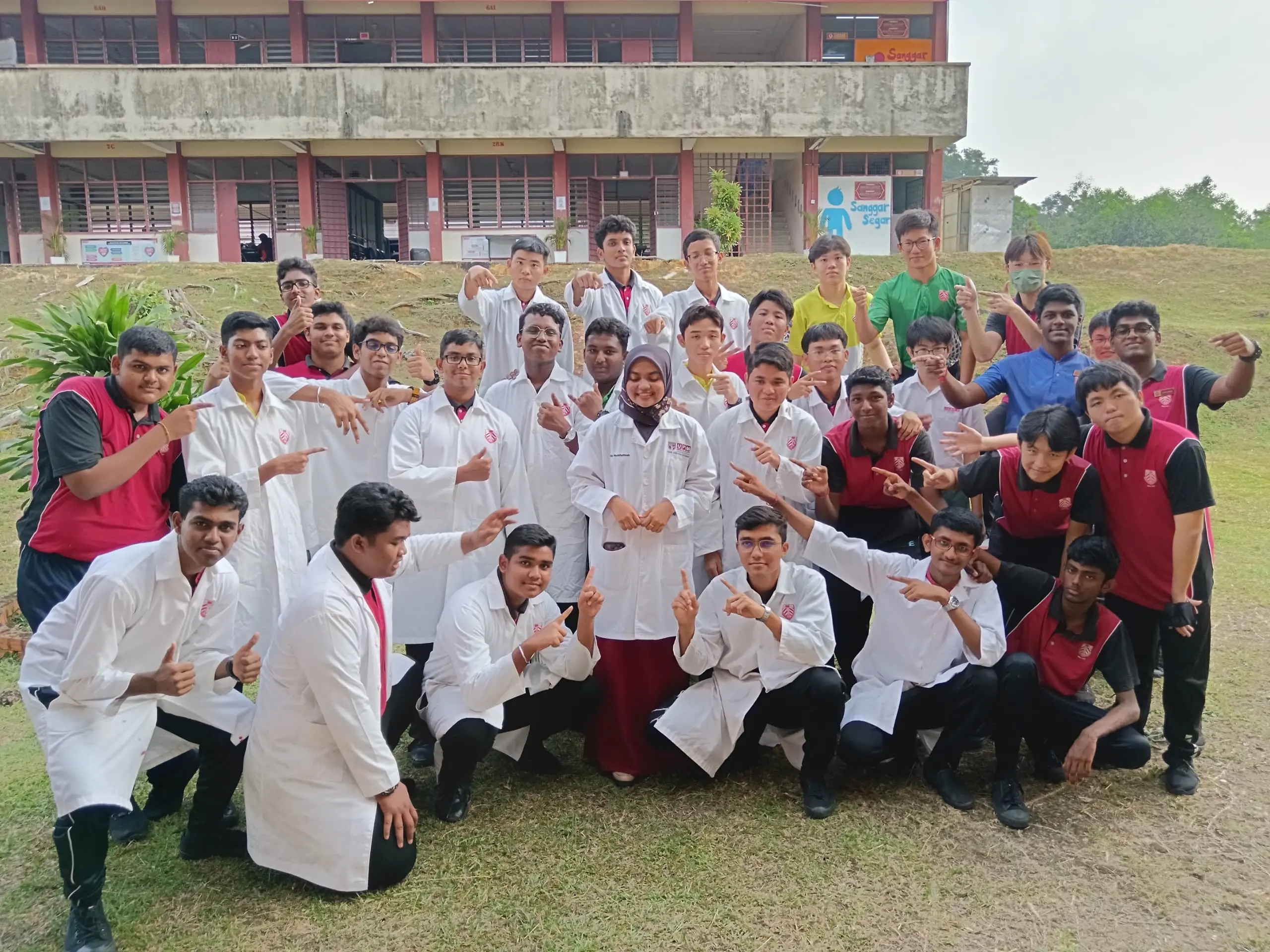
“In the next 10 years, I want to be at the forefront of new technologies that help people and the planet,” he said.
For a young innovator with such big dreams and a clear vision, it’s safe to say Phavanesh’s journey is only just beginning. And who knows? His next invention might just change the world too!
Exclusive Story by WeirdKaya – If you wish to reproduce this story, please ensure that you obtain consent from the interviewee to maintain factual accuracy and avoid the potential spread of misleading information.
If referencing or using any information from our story, we kindly ask that proper credit is given, along with a backlink to WeirdKaya, as acknowledgment of the efforts made by our editors in sourcing and conducting interviews.
READ ALSO:


